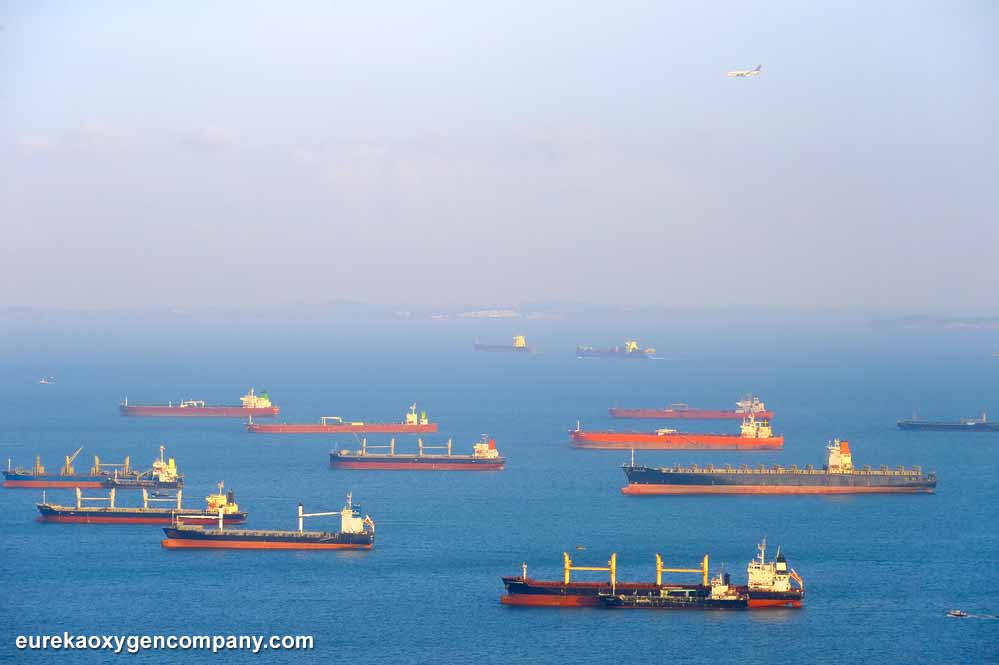One of COVID-19’s most far-reaching repercussions has been the major breakdown of the global supply chains for a wide variety of industries. When the pandemic struck, the industrial sector, like most others, was forced to halt operations indefinitely. However, as the lockdown restrictions were eventually lifted, there was a surge in demand for industrial products including liquefied natural gas (LNG) as there was for other consumer goods. Worse, the various global supply chains, which had been disrupted over the better part of 2020, are still grappling with significant issues that threaten to be more severe as time passes by.
In turn, this has given rise to a looming crisis among manufacturers and distributors of LNG worldwide who are now hard pressed to supply their products like they did before COVID-19 struck. Some of the most prominent problems facing these companies include labor shortages and lacking sufficient raw materials. Like it was earlier noted, this supply chain crisis has been global in magnitude. Many countries including the US, Germany, the UK, and even China are feeling the heat, albeit in varying ways. The United States, in particular, is now struggling with a sharp shortage of truck drivers. On the other hand, Germany has been experiencing huge backlogs of products at its ports.
The global supply chain crisis has the potential to become more extreme over time
According to experts in these matters, this supply chain crunch is bound to get worse with the passage of time. Border controls, restrictions on mobility, and pent-up demand will substantially impact the global production of numerous industrial products including natural gas.

This is simply because deliveries cannot be made on time, which will, in turn, cause operational costs and eventual prices to escalate to the detriment of consumers. Also, the supply of LNG is bound to still play catch up in the near future since they’re already prominent bottlenecks in most links of the worldwide supply chain. Among other things, these bottlenecks include the congestion and blockages that have been witnessed in production systems globally. Both these issues have gone on to have a great impact on diverse sectors, most notably, the industrial sphere.
At the same time, the pent-up demand for LNG products that were already in short supply when the pandemic hit, has led to freight rates rising exponentially. Fortunately, the US has been mostly cushioned because it consumes most of the natural gas it produces. Nevertheless, there is still the issue of delivering goods to their final destinations on time. This means once these industrial products finally reach the stores, their prices are bound to soar.
When working at peak performance, worldwide supply chains are always useful in reducing operational costs for the industrial sector. They can even promote innovation and healthy competition among manufacturers. However, the pandemic has been able to flag complex fragilities in these international trade networks. This is especially the case when you take into account that the disruption of a single component of the supply chain tends to have a ripple-down effect on other components. Essentially, this ranges from manufacturers to supplies and even distributors. Ultimately, this will be very bad news for the consumer.
The global supply chain crisis will hit global economic growth hard
As the global economy attempts to get back on its feet after the ravages of COVID-19, this supply chain challenge has proven to be one of the greatest issues many countries have to face post-pandemic. Citizens, the world over, are increasingly getting tired of the restrictions that have been imposed on them, and eager to spend, but are finding shortages of products or alternatively, soaring prices. This challenge is currently threatening to extend its grip on the holiday season. To this end, the US government has warned Americans that they might have to deal with exorbitant price hikes and even sparser shelves during the end-of-year festivities.


The global supply chain crisis will impact industrial earnings
According to a number of experts, earnings won’t be left unscathed by the short-term and long-term consequences of this supply chain crunch. Many American companies have already issued warnings on rising operational costs that are directly attributable to severe supply chain disruptions. Experts are, nevertheless, optimistic that some of the factors behind the crisis will be resolved much faster than others. This includes the shortage of labor.
On the flip side, some issues are destined to have far-reaching and long-term impacts on specific industries. The rise in cost, for instance, will be much severe on low-margin businesses like those in the transportation, construction, general retail and automotive sectors.
As a leading provider of industrial gases, Eureka Oxygen is committed to supplying them to our clients to the best of our ability despite the global supply chain crunch. We also stock quality welding equipment, welding supplies not to mention diverse industrial equipment safety gear and equipment.

